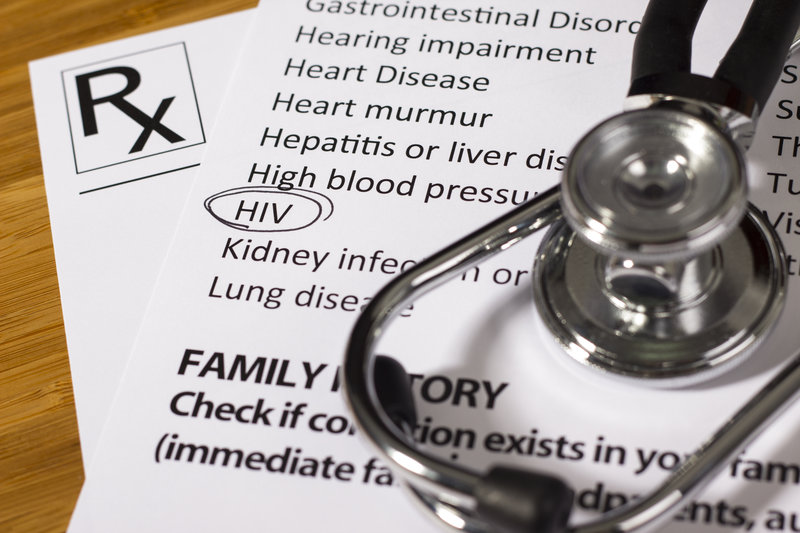
Moving to a new city means change. Among those changes is the likelihood that you’ll need to find a new health care provider. And for those people with chronic conditions, such as HIV/AIDS, it’s important that your new community can provide you with the same or better level of care than you’re used to.
Palm Springs is unique for a small town in that it has a large community of people living with HIV, many of whom are 50-plus years old. The availability of health services for this demographic is particularly outstanding in the Coachella Valley and comparable to those you’d find in a city like San Francisco or Los Angeles.
Health and wellness have always been in the DNA of Palm Springs. The Aqua Caliente Band of Cahuilla Indians were aware of the healing powers of the hot, mineral springs that bubble up near the location of their new Cultural Center. John McCallum, one of the first settlers of European descent, brought his ailing son here for the warm, dry climate. And Nellie Coffman and her physician husband founded the Desert Inn originally as a sanitorium for people with tuberculosis.
Living with HIV in Palm Springs
In the past decades there has been a virtual migration of HIV positive men of a certain age to Palm Springs. (There is an indie documentary, Desert Migration, that explores this very subject.) In the 80s and 90s, AIDS was ravaging the gay population. Many HIV positive men assumed they were living on borrowed time. Leaving the rat race of the city and retiring early to Palm Springs seemed like a propitious choice.
Many of these men experienced the worst of the crisis and in moving to the desert, have found a welcoming, supportive community -- a community bonded by a shared understanding of what it means to be HIV positive. Having lost their social circle in the city, long-term survivors establish new ones here, sometimes reestablishing contact with people they used to know, but haven’t seen in years.
Living with HIV/AIDS is different in Palm Springs. It’s a condition, shared by many others in the community, like aging. And the health services in the desert have stepped up to meet to meet the needs of this community.
At first, HIV specialty care professionals and facilities were lacking until the community organized and started the Desert AIDS Project (D.A.P.). As more HIV positive men moved to the desert, other local health organizations began to offer improved services to meet the need.
Desert AIDS Project
The Desert AIDS Project was founded in 1984 to face to the mounting AIDS crisis. It has been the Coachella Valley’s primary resource for those living with, affected by, or at-risk for HIV or AIDS. Now a Federally Qualified Health Center, D.A.P. still operates with a large volunteer staff and survives primarily on private donations. It holds several prominent fundraising events annually, including the Steve Chase Awards, the Desert AIDS Walk, and Queen of the Desert. And it operates three popular Revivals vintage, resale and thrift stores in Palm Springs, Cathedral City and Palm Desert.
With a focus on serving the under-served in the valley, D.A.P. provides HIV specialty care, primary medical care, dentistry, behavioral health and social services all in one location. Through its Dock program, it offers free or low-cost HIV and Hepatitis C testing, STD testing and treatment, and PEP and PrEP information and treatment.
The D.A.P. operates an 80-unit affordable housing community, Vista Sunrise, for those in need. A long waitlist for housing has prompted an expansion effort to add additional units. There is also a Walgreens pharmacy onsite. The D.A.P. houses all these services at one campus at the corner of Sunrise and Vista Chino.
Eisenhower Health
Eisenhower Medical Center (now Eisenhower Health) has much more to do with Bob and Dolores Hope than Dwight Eisenhower. The Hopes donated the acreage for the original Rancho Mirage hospital and tirelessly fundraised to build this important valley institution. Dolores Hope served on the board continuously from its start until she died in 2011.
Besides the hospital and medical center in Rancho Mirage, Eisenhower has established locations throughout the valley. One location in particular, the Eisenhower Health Center at Rimrock (East Palm Canyon near Gene Autry Trail), is known for its focus on HIV specialty care. Physicians at Rimrock have a significant number of gay male patients and the experience needed to work with men who are HIV positive, with a focus on the interface of aging and HIV.
Eisenhower Health has established at Rimrock the Eisenhower Sexual Health Clinic, which offers testing and treatment for sexually transmitted infections and information on PrEP. Some services are available without an appointment.
Besides these institutions, there are numerous behavioral, educational and support groups for gay men, in Palm Springs. If you’re moving here alone, you won’t be alone for long.
Posted by Geoffrey Moore on
Leave A Comment